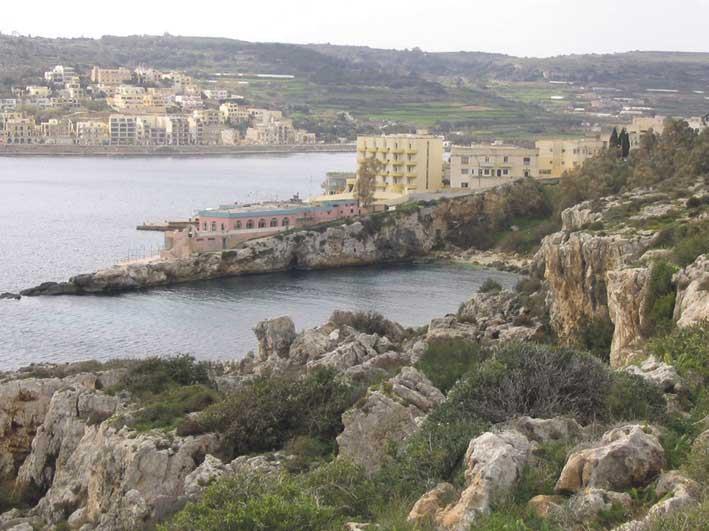The National Audit Office flagged serious shortcomings in the 2012 sale of a St Julian’s property worth €2.4 million for just €525,000, citing an “element of ministerial involvement”.
In a report tabled in parliament last night, the NAO found that the principles of transparency, good governance and ensuring that the public’s interests are being safeguarded when government carried out the sale of the property in question to Eighty Two Co Ltd were not followed.
A lack of supporting documentation during internal meetings when key decisions were made meant that the NAO could not ascertain the degree of ministerial involvement. It does note a lack of evidence regarding political pressure which was claimed to have been exerted by then minister Jason Azzopardi. The report however raised suspicions on the degree of his involvement with regards the decision to go ahead with the less financially advantageous sale of the property instead of imposing a permanent emphyteusis.

On 23 June 2015, the Public Accounts Committee requested the National Audit Office (NAO) to investigate the transfer of property at 83 Spinola Road, St Julian’s (the road of Hotel Cavallieri) in order to ascertain whether the principles of good governance, value for money, transparency and accountability were respected, and whether any political pressure was exerted.
The temporary emphyteusis of the property was acquired by E.G. Property Holdings Ltd, now known as Eighty Two Co Ltd, in 1998, at which point the emphyteusis had already expired.
By the time the GPD became aware of this anomaly, the company had developed the site as part of a larger complex.
Further complicating the issue, the company encroached on public land when extending the development over the adjacent foreshore, over which Government had initiated judicial action.
The Court ruled in the Government’s favour, the GPD disposed of the site, including that of the expired emphyteusis, for €525,000.
“It remained unclear to the NAO who instructed and authorised the assimilation of the foreshore with that of the expired emphyteusis,” the report reads.
“Although this decision followed a meeting between the GPD and the Company, the Office traced no documentation authorising the incorporation of the foreshore as part of 83 Spinola Road, which assimilation significantly increased the dimensions of the site.
“The NAO also noted various instances when decisions to dispose of the site were taken based on incomplete information.”
This included the authorisation of the tender proposal by the Director General GPD, the referral to the Department of Contracts and the approval by the Minister for Finance and the Parliamentary Secretary Revenues and Land.

“Critical in this respect was the involvement of the Commissioner of Land, who was certainly aware of the Court ruling yet failed to bring this significant fact to the fore notwithstanding numerous opportunities to do so.”
“In the NAO’s understanding, the omission of any reference to the foreshore misled the due consideration of the case and cast doubt on the integrity of the process.”
The report chastises the government for failing to secure value for money in the disposal of the site for €525,000. While the report acknowledges that the E.G. Property Holdings Ltd could have been the most suitable buyer, in view of the investments it has already carried out on the site, it found the final value of sale to be far too low.
“The NAO established the value of the site and structure at €2,400,000. Even if one were to consider the site and its potential, which the NAO valued at €1,500,000, it is immediately evident that the GPD failed to obtain a fair value for the property.”
“Compounding matters was the fact that Government disposed of the site through outright sale rather than through a perpetual emphyteusis.
“A perpetual emphyteusis would have ensured that all revenue be retained by Government. As at April 2017, by which time all payments by E.G. Property Holdings Ltd were to be effected, a balance of €309,000 remained outstanding.”
The report noted that “the NAO did not find direct evidence of political pressure exerted in the process reviewed.”
“However, the involvement of the Minister for Fair Competition, Small Business and Consumers and his Head of Secretariat in the latter stages of the process of disposal drew the Office’s attention.”
In one case it noted an element of ministerial involvement, in the change from perpetual emphyteusis to sale on one of the sites. While in the other report, the NAO noted that “the lack of documentation as a serious shortcoming, impeded the Office from establishing key developments, detracting from the principles of good governance, accountability, and transparency.
“In the NAO’s opinion, the context of the change from perpetual emphyteusis to sale indicated an element of ministerial involvement, for it was after a meeting held with the Minister MFCC and the Permanent Secretary MFCC that the DG GPD recommended disposal through outright sale.”
“This contrasted with an earlier recommendation by the DG GPD and the endorsement of the Minister MFEI and the PS Revenues and Land for disposal of the site through perpetual emphyteusis.”

Fekruna Bay NAO report
On 23 June 2015, the Public Accounts Committee requested the National Audit Office (NAO) to investigate the expropriation of the property at Fekruna Bay, St Paul’s Bay.
The property, valued at €4,972,007, was expropriated on 5 March 2013.
Compensation was paid to the owners through an exchange of sites at San Ġwann and Swieqi, in aggregate valued at €4,271,583.
The balance of €700,424 was offset against capital gains tax and duty on documents due by the Company.
The public purpose served by this expropriation was tied to Government’s efforts to acquire land to be returned to its original state for the benefit of the public
“In the NAO’s opinion, the expropriation of this property, although within development boundaries, served the intended public purpose.”
The report noted that negotiations undertaken by the Property Evaluation Committee (PEC) provided safeguards to the integrity of the process.
However, it also said that “the PEC was constrained by budgetary limitations, which prohibited cash settlement.”
The PEC valued the site at €5,000,000 and, in October 2010, obtained the authorisation of the Minister of Finance, the Economy and Investment to proceed with negotiations and identify government-owned land to be exchanged
Following ministerial authorisation, responsibility for the process was assumed by the Director General (DG) Government Property Department (GPD).
No documentation was retained with respect to meetings held between the DG GPD and Fekruna Ltd, the process that led to the identification of lands for exchange and how the Company was informed of these sites.
“The NAO considers the lack of documentation as a serious shortcoming, impeding the Office from establishing key developments, detracting from the principles of good governance, accountability, and transparency.”
In view of the disagreement between the parties, the DG GPD proposed resolution through arbitration.
Although legislation does not specify whether it is permissible for owners of expropriated property to be involved in valuing government-owned land, the NAO maintains significant reservations in this respect.
“In this Office’s opinion, arbitration, if any, was to be resorted to in the establishment of value of the Fekruna Bay property and not in the case of the San Ġwann and Swieqi sites. Negotiations on the value of government-owned land present an added and unwarranted risk to the Government.”
“Following the agreement, in correspondence to the Minister for Fair Competition, Small Business and Consumers, the DG GPD expressed doubt as to the prudence of concluding the expropriation given the imminent election.
“The Minister contended that the expropriation was to be concluded as it had been initiated years earlier and served an evident public purpose.”
“The NAO acknowledges that there is no legal stipulation of what functions of government come to a halt, and when, once an election is announced. This Office considers valid the exercise of prudence, yet similarly deems valid the conclusion of a process long outstanding.”
“Given the regulatory lacuna, the matter remains subjective.”
“When comparing the valuations of the lands exchanged as established by the Internal Audit and Investigations Department and those cited in the contract, the difference of €1,127,424, adverse to Government, is substantial.”
“An element of this difference can be attributed to the subjectivity inherent in the valuation of property; however, other factors, such as applicable development policies that are more objective in nature, bore impact.”

Jason Azzopardi reaction
In a post on social media, PN MP Jason Azzopardi said that the reports “confirm that Muscat’s allegations over the last four years were false from the beginning to the end.”
“Both the reports confirm that there was no political intervention and that the process went beyond any political involvement.”
“These reports remove the mask of Joseph Muscat, and with his Minister, lied and made false allegations against me.”
“The truth remains that the Auditor General is giving me a positive review for my work, while he found Minister Konrad Mizzi guilty of political involvement in the sale of oil, which resulted in the loss of 14 million euro, and Minister Micahel Falzon guilty of collusion in the Gaffarena scandal.”
Azzopardi has branded Prime Minister Joseph Muscat a liar after two National Audit Office (NAO) reports into the expropriation and transfer of property “did not find any direct evidence of political pressure”